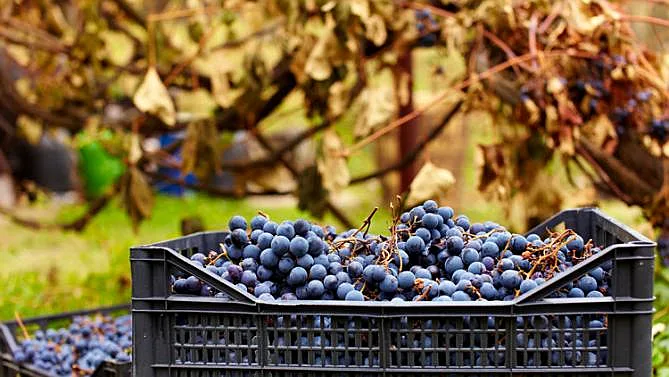

The French and the culture of wine
The French have historically been associated with the finer things in life. French gastronomy, French fashion, French luxury products and fragrances, French wines, and the French way of life, have admirers all over the world. This makes it all the more desirable for people to search for luxury real estate.
In fact, wine is integral to French culture, the country has a long history of wine production and almost every region of France produces a variety of wines. The proportion of land used for viniculture in France is expansive, and the quality of wine produced in France is widely acknowledged to be the best in the world. It's no wonder then that France is the leading producer of wines in the world. Only top realty agents can help you obtain a home in an area so high in demand.

A Brief History of Wine in France
Historical records can trace the origin of viniculture in France to the 6th century BC when the Phoenicians cultivated vineyards in the south of France near Marseilles. Soon winemaking spread from France to other European countries such as Spain, Italy, and Germany. Wine soon came to be regarded as a fashionable drink, which complemented rich food. During the Dark Ages, stronger and heavier wines found much favor as they began to accompany meals.
The popularity of wine as a drink of choice in France increased under the Romans. The Romans embraced the Catholic Church and Christianity and wine soon became an important part of the sacrament. Monasteries in various parts of Europe began to cultivate vineyards. For instance, the Benedictine monks of France’s Champagne, Bordeaux and Burgundy regions were major producers of wine as they improved on the methods of wine production.
As the influence of the Catholic Church extended in Europe, viniculture also grew in popularity. Soon wine soon came to be regarded as a popular beverage, which complemented rich food. Many noblemen and merchants maintained well-stocked cellars, as wine became a regular feature on dining tables. The culture of drinking wine gained momentum in the 16th century. Wine also traveled to the new world to countries like Mexico, Argentina, Chile, and Brazil via the conquistadors and missionaries. Wine and the cultivation of wine then went on to spread to countries like the USA, Canada, Japan, South Africa, Australia, New Zealand, and others.

Following the improvement of wine-producing techniques improved during the 17th and 18th centuries, the French wine industry blossomed and French wines were exported to other European countries like Ireland, England, Germany, and many others. French wines were also exported to the New World and bartered for coffee, and other sought-after items.
The French wine industry suffered a setback in 1863 when a disease called Phylloxera aphid attacked French vines. The vintners then introduced stronger American vines in affected regions, which helped to alleviate the problem. Soon after the French wine industry was back on its feet and French wine is now thought of as a premium product, which is much admired around the world.
Wine Tourism
The great appreciation for French wine has led to the growth of a whole industry-wine tourism. Wine–tasting and vineyard touring are now accessible to the wine enthusiast. In every wine-producing region of the country, local wine boards, vineyards, vintners, tourist officials, and guides are on hand to guide wine tourists on their journey.
The production of wine in France is closely linked to the culture, cuisine, and history of a particular region. In fact, almost all of France is a wine country and it is almost impossible to take in all the wine-producing regions of France in one trip. Moreover, each wine-producing region of France differs greatly from the next for each region has its way of naming and classifying wines based on the ‘terroirs’ or the soils of the region where they are grown.
Wine tourism is today a well-entrenched activity and visiting vineyards and wineries is now quite commonplace as both small vineyards and prestigious chateaux are happy to welcome non-professionals for tastings and various other allied activities like cooking classes. Often these wine-inspired cooking classes are combined with tours of local markets and vineyards and wine tastings of course. In most wine-growing regions, there also exist wine schools, which offer classes in wine appreciation and sommelier training. While wine centers and co-ops offer visitors tastings and the chance to buy the local production.
Wine museums in the wine regions aim to educate tourists about the intricacies of wine production. No wine tour is complete, without sightseeing the local sights.
Accommodations on these wine tours range from opulent to budget hotels, spectacular chateaux and monasteries, renovated mills, and quaint bed and breakfast establishments, which stand in the midst of lush vineyards. Many high-end French chateaux are outfitted in the manner of hotels and feature desirable amenities such as on-site spas, golf courses, and restaurants.
Engel & Völkers Hong Kong would like to present to you our exclusive French Project - Parnay. For more details, please contact Carmen Wong at +852 3997 3200 or email at Carmen.Wong@engelvoelkers.com The best real estate agent can find you the best accommodations in luxury estates.


.png)
.webp)
